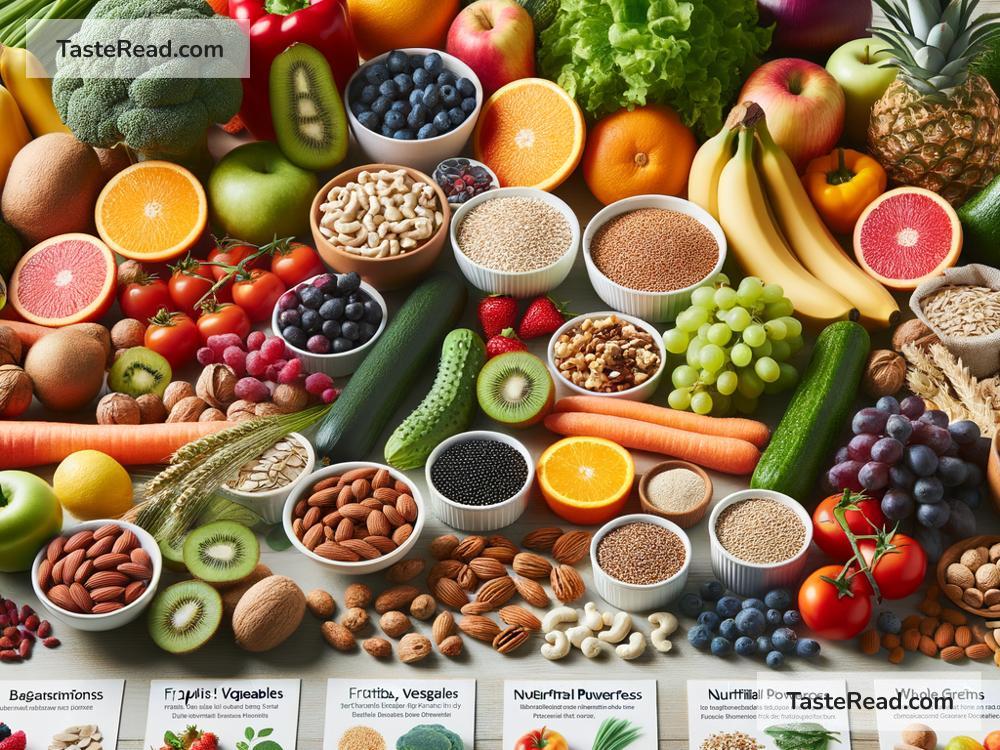Vitamins and Minerals: Essential Nutrients for Health
Imagine your body as a machine. Like every machine, it needs fuel and maintenance to function properly. Food provides the fuel, but what’s behind the scenes keeping everything running smoothly? The answer lies in vitamins and minerals: essential nutrients that play key roles in keeping your body healthy and strong.
What Are Vitamins and Minerals?
Vitamins and minerals are substances your body needs to grow, stay healthy, and work efficiently. While carbohydrates, proteins, and fats provide energy, vitamins and minerals help regulate important processes in your body. From boosting your immune system to keeping your muscles and bones strong, these nutrients are like the tiny tools and screws that hold everything together.
Unlike energy-producing nutrients, vitamins and minerals don’t add calories to your diet. Still, they are essential—you can’t live without them.
The Difference Between Vitamins and Minerals
Although they’re often grouped together, vitamins and minerals are actually different.
- Vitamins: These are organic compounds, which means they come from living things. They can be found in fruits, vegetables, meats, and dairy products. Vitamins are classified into two types:
- Fat-soluble vitamins (like A, D, E, and K) dissolve in fat and are stored in your body.
-
Water-soluble vitamins (like B vitamins and vitamin C) dissolve in water and aren’t stored, so you need them regularly.
-
Minerals: These are inorganic elements, meaning they come from the earth—think rocks and soil! Minerals like calcium, iron, and potassium are absorbed by plants and animals, and we get them through what we eat.
In short, both types of nutrients are critical, but they come from different sources and serve different purposes.
Why Are Vitamins and Minerals Important?
Your body relies on vitamins and minerals to perform countless tasks every day. Let’s take a closer look at some of their roles:
-
Energy and Metabolism: Vitamins like B1 (thiamine), B2 (riboflavin), and B3 (niacin) help your body convert food into energy. Without them, you’d feel weak and sluggish.
-
Bone Health: Calcium and vitamin D are vital for strong bones and teeth. They work together to prevent issues like osteoporosis (weak bones) as you age.
-
Immune System: Vitamin C (found in oranges and other fruits) and zinc help your immune system fight off sickness. They keep you strong and healthy by protecting your body from harmful viruses and bacteria.
-
Blood Health: Iron is crucial for creating healthy red blood cells, which carry oxygen throughout your body. Without enough iron, you may feel tired and weak—a condition called anemia.
-
Skin and Eye Health: Vitamins A and E are essential for healthy skin and eyes. Vitamin A, for example, is important for good vision, while vitamin E helps protect your skin from damage.
-
Heart Health: Magnesium and potassium work to keep your heart beating properly. They support muscles and help regulate blood pressure.
Each vitamin and mineral has its own specific job, but they also work together like a team to keep your body running smoothly.
Where Do You Get Vitamins and Minerals?
The best way to get vitamins and minerals is through a balanced diet. Different foods offer different nutrients, so it’s important to eat a variety of fruits, vegetables, whole grains, proteins, and dairy products. Here are some examples of nutrient-packed foods:
- Fruits and Vegetables: These are rich in vitamins such as C, A, and K, as well as minerals like potassium and magnesium.
-
Examples: Oranges, spinach, carrots, broccoli, bananas.
-
Whole Grains: Whole grains like oats and brown rice contain B vitamins and important minerals like iron.
-
Examples: Bread made with whole wheat, oatmeal.
-
Dairy Products: Milk, yogurt, and cheese are excellent sources of calcium and vitamin D, which are great for your bones.
-
Examples: Low-fat milk, Greek yogurt.
-
Meat, Fish, and Eggs: These provide protein and essential nutrients like iron, zinc, and vitamin B12.
- Examples: Lean chicken, salmon, eggs.
While eating a balanced diet is the best way to get these nutrients, some people may need extra help. In those cases, doctors might recommend supplements, which provide vitamins and minerals in pill or powder form. Always speak to your doctor before taking supplements, as too much can be harmful.
What Happens if You Don’t Get Enough?
If you don’t get enough vitamins and minerals, your body may show warning signs. For example:
- A lack of vitamin C can lead to bleeding gums and slow healing wounds (a condition called scurvy).
- Low calcium and vitamin D can cause weak bones.
- Not enough iron can make you feel tired and dizzy, leading to anemia.
That’s why it’s so important to eat a variety of nutritious foods every day. Your diet plays a huge role in how you feel and how your body performs.
Final Thoughts
Vitamins and minerals may be small, but their impact on your health is enormous. They keep your body functioning properly, help fight disease, and make you feel your best. The good news? You don’t have to work hard to get them. A colorful plate of fruits, vegetables, whole grains, lean proteins, and dairy products can provide all the essential nutrients your body needs.
Think of vitamins and minerals as your body’s secret superheroes. Though you may not see their work, they are always behind the scenes keeping you strong and healthy. Take care of your diet, and your body will take care of you!


